
Learn what you can do to support your aging loved one during this tough time.


Learn what you can do to support your aging loved one during this tough time.

When searching for ways to help a loved one with cognitive decline stay independent yet financially safe, consider a prepaid debit card. They allow you to manage spending while also giving the older adult freedom to shop within their means.

When your parent loses their spouse, both of you are navigating an unfamiliar emotional landscape. Offering a listening ear, supporting new routines, and gently encouraging social connection can help ease the transition. And as you help your parent through their grief, remember to take care of your own feelings too.

June is Cataract Awareness Month. Cataract is one of the most common visual impairments and can cause progressive vision loss in older adults. Luckily, the surgery to treat it is very safe and effective. Still, a little prep goes a long way in ensuring comfort and success for your loved one.
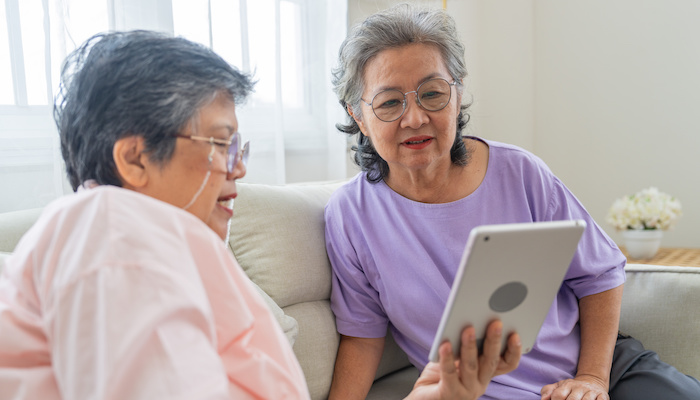
June is Aphasia Awareness Month. Communication is a basic human need—but for those living with aphasia, finding the right words can be a daily challenge. When a stroke or brain injury creates problems with language, you have to get creative about ways to communicate: try gestures, drawings, even apps that can help with speech exercises.

Even in the later stages of dementia, music can bridge barriers and provide opportunities for joy and connection.
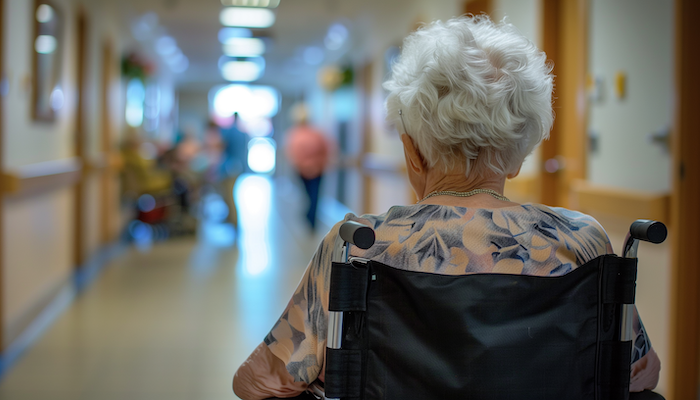
If your loved one needs full-time care and supervision, they may need to relocate to a nursing home. But how do you decide which one is the best fit?

Searching for a heartfelt way to honor someone after they’ve passed? Consider a celebration of life. These events leave a lot of room for creativity and can help honor your loved one’s legacy in a deeply personal and positive way.

Prediabetes is more common than you might think, especially in older adults. The good news? Simple lifestyle changes, such as healthy eating and exercise, can lower blood sugar and reduce the risk of developing diabetes.

If dementia is making it hard for a loved one to live independently, memory care can provide the specialized support they need. These facilities offer a safe and comfortable environment with extra staff, simplified building layouts, and activities that promote engagement.
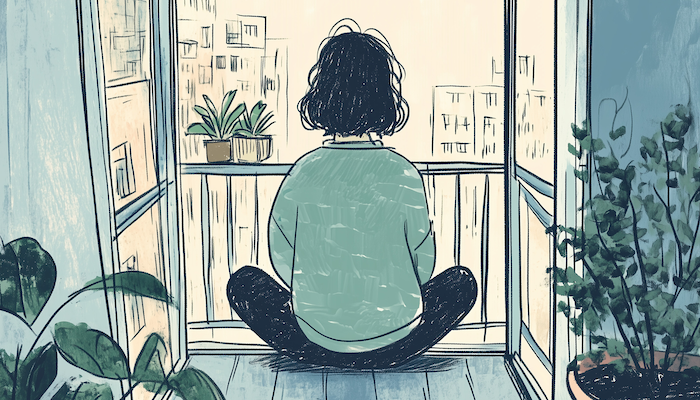
Does caring for a loved one leave you feeling overwhelmed sometimes? Certain breathing patterns can calm your mind, reduce anxiety, and boost your well-being—anywhere, anytime. If you’re feeling stressed and need a moment to reset, try a simple technique such as box breathing.
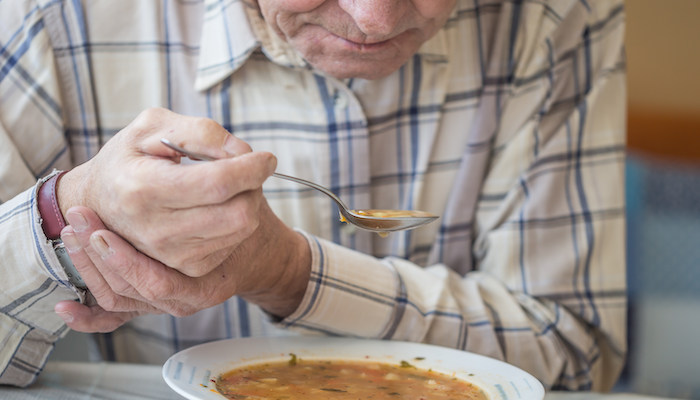
Essential tremor is a common but often misunderstood condition affecting many older adults. It causes involuntary shaking that is non–life threatening but can certainly affect your loved one’s quality of life. Learn more about how to get a diagnosis and explore treatment.

April 16 is National Healthcare Decisions Day! You’ve probably heard of the Golden Rule, but do you know about the Platinum Rule? If you’re in charge of making decisions on behalf of an older adult, this motto can be a compass for you as you navigate that role.

Being a family caregiver means balancing love and support with the weight of responsibility. Don’t forget to treat yourself with the same kindness you show others! Instead of self-criticism, try compassion. Research shows it helps you cope better, stay positive, and even take better care of your health.

Life is unpredictable. There’s a good chance that at some point the person who takes care of your aging loved one—whether that’s you or someone else—will have an emergency. By creating a backup plan, you take control and ensure your loved one is cared for, even when the unexpected occurs.

Taking care of an older adult can be deeply rewarding … and it can also come with challenges. It may be hard to admit to frustration, but it is a very normal feeling. Learn some ways to reduce and manage those tough moments.

If your relative isn’t improving with their current treatment, it could be a sign of a misdiagnosis. If something doesn’t feel right, it’s important to trust your instincts and consider asking for a second (or third!) opinion.
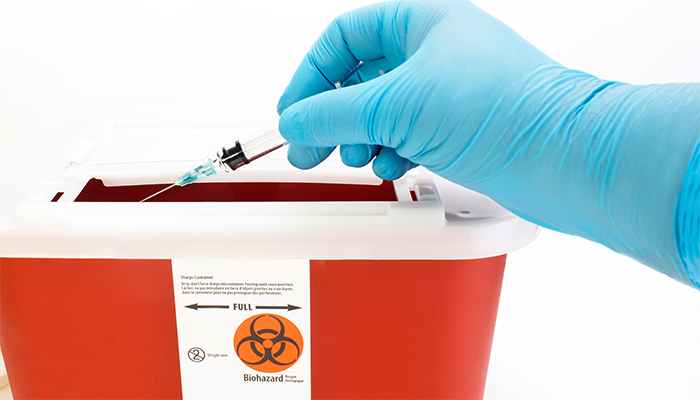
Need to dispose of needles or lancets as part of caring for a loved one? Proper disposal is crucial to prevent injury and protect public health. Stay safe, stay responsible, and ensure sharps don’t end up in places they shouldn’t be!

A decline in your loved one’s cognitive abilities doesn’t necessarily mean they lose their need for activity and mental stimulation. It’s important to find ways to keep them engaged, no matter what stage of dementia they are in.

In honor of American Heart Month, we take a look at the symptoms of a heart attack. Some of them are not well known and differ between men and women. Understanding the warning signs can save lives.

With National Burn Awareness Week in February, it’s a good time to focus on fire safety. Is there a fire escape plan for the older adults in your life? Preparing for an emergency can save lives.

Sometimes a loved one refuses help because it’s painful for their self-image or their pride. Sometimes it’s because they feel they will lose their privacy, perhaps be judged by the person helping. There are ways to address each of these very real barriers.

Does someone you care about refuse help? Sometimes the barrier involves concerns about cost. At other times the barrier might be a fear of losing independence.

Losing a pet can be incredibly difficult, especially for older adults who live alone or have experienced other losses. Pets offer companionship and emotional support, making their absence deeply felt. If you care for a loved one who has lost a pet, consider what you can do to support them.

Caring for a loved one can strain your finances, but it doesn’t have to. Discover ways to ease the financial drain and protect your income and savings.

There’s no place like home! But for older adults with dementia, home may not be designed to accommodate their specific needs. Learn more about the adjustments that can be made to minimize risks and support their independence.

Is “snail mail” stuffing your loved one’s mailbox with unwanted catalogs and ads? Don’t let junk mail lead to missed bills or insurance scams. Stop the clutter and protect the mail they need to keep.

Do you berate yourself for putting things off? If your New Year resolution is to stop procrastinating, consider a more compassionate approach (and get more things done!).

Let’s be honest: Taking care of a loved one is tough! Here are a few ways to boost your emotional health and resiliency during this season of life.

If someone you care for experiences dizziness when standing up, it may be due to orthostatic hypotension (OH). Luckily, simple steps can help manage symptoms and prevent falls.

It can be obvious to you that help is needed, but the person you care for may not see it that way. Learn how to explore the issue by listening first. You may be surprised by what’s at the root of their refusal.

Looking to keep your loved one safe on the road? Their existing car may not have the most advanced safety features. Make sure your relative’s vehicle has options that increase safety, comfort, and ease of use for older adults.
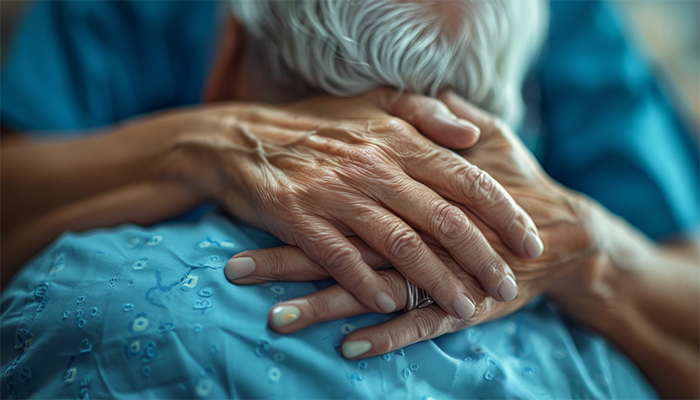
All humans need positive touch. That is no less true for older adults. At an age when many may feel isolated, a friendly hug or handshake can bring comfort, reassurance, and increased well-being.
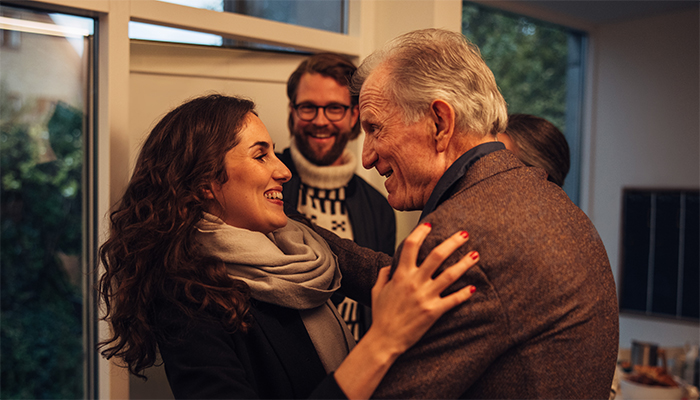
A visit with faraway family can be difficult when your loved one has dementia. Routines are reassuring, but travel—almost by definition—disrupts routine! With careful strategizing, however, you can still have a fun and loving visit.

You may feel overwhelmed by your caregiving responsibilities. But making sure you also notice what’s good in your life—a balanced perspective—can help improve your physical and emotional well-being.

As we age, a cluster of changes together can affect our ability to bounce back in the face of physical challenges. Understanding your loved one’s level of frailty can help you make important health decisions and strategize for better resilience.

It may look like your loved one has been admitted to the hospital, but they may be there just for observation. This can profoundly change how much Medicare will pay for the stay and for any needed aftercare.

Consider strategies to emphasize quality over quantity and get rid of the obligatory activities that do not feed your soul.

October is Bone and Joint Health Awareness Month. While disabilities often bring to mind mobility, visual, or hearing impairments, stiff or arthritic hands can be profoundly disabling. Help your loved one maintain their daily independence with these expert hacks and gadgets.

When asked about the positives of caregiving, many people report feeling proud of the ways they have grown as a person. That often involves deep vulnerability as you face new, even scary, demands. Learn tips for managing that vulnerability to your greatest benefit.

When the body is at war with itself, it’s difficult for its cells to carry on their normal, healthy processes. Fortunately, there are things you can do at home, without medications, to reduce the chance of inflammation and support a resolution to back to normal.

September is National Suicide Prevention Month. Suicide among older adults is more common than you think, especially among men over age 75 who are socially isolated and have health challenges. Be sure you know the signs and who to call if you believe that your loved one is contemplating self-harm.
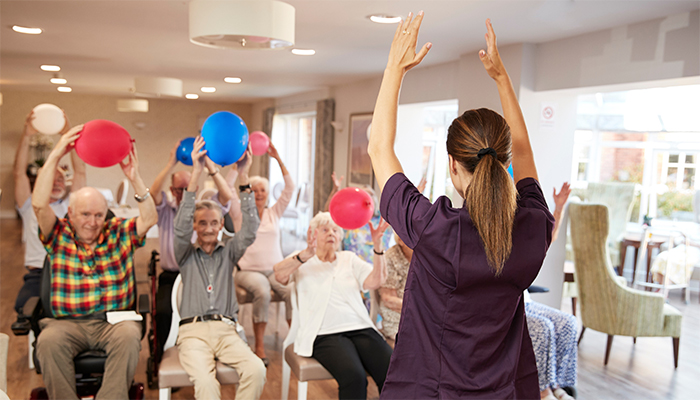
Since their start in the 1980s, assisted living communities have become very popular. But the type of residents living there now is quite different from those of early years. They’re useful if they meet your loved one’s needs, but they may not be what you had in mind.

It may not be obvious, but you can usually find something to be hopeful about. So much is out of your control as a family caregiver. While hope can make caregiving easier, it’s not always easy to find. Check out these thoughts about “realistic hope” to reduce your stress and improve your own sense of well-being.

Suppose you have a car accident. Or you faint. Or get injured. Who will know to get help for your relative if something unanticipated happens to you?
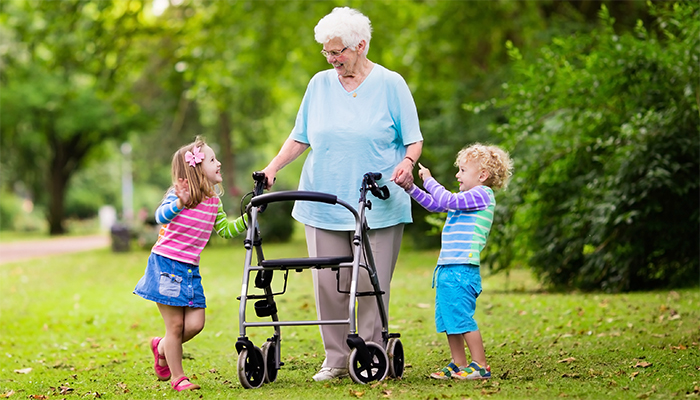
Does your loved one have problems with falling but still wants to get out and get around as before? Consider a rollator. Learn about the features to look for depending on indoor or outdoor use.

Perhaps the person you care for has visual impairments. Help them retain their independence by applying these tips for navigating the world of money despite low vision.
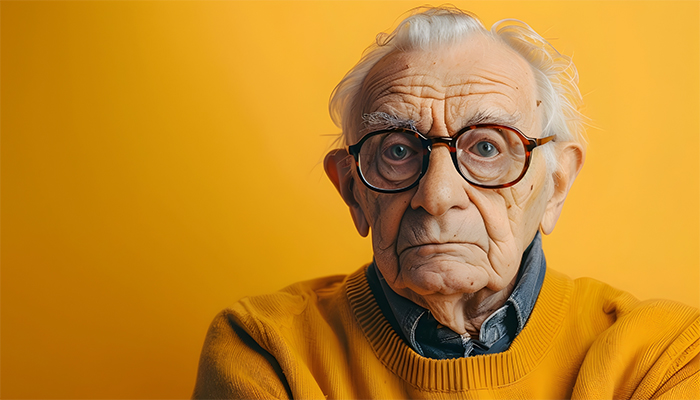
It’s tempting to push for needed changes. But your relative is more likely to dig in their heels when you do. Resist the allure of efficiency. Instead, consider an empathetic approach with small steps. You don’t want to risk harming your relationship.

Even if you are dealing with a serious caregiving situation, taking a moment to laugh and let some humor into your life can do wonders for your own health. Laughter can help you continue on without compromising your ability to be responsible and do what is needed. In fact, it will improve your emotional stamina.
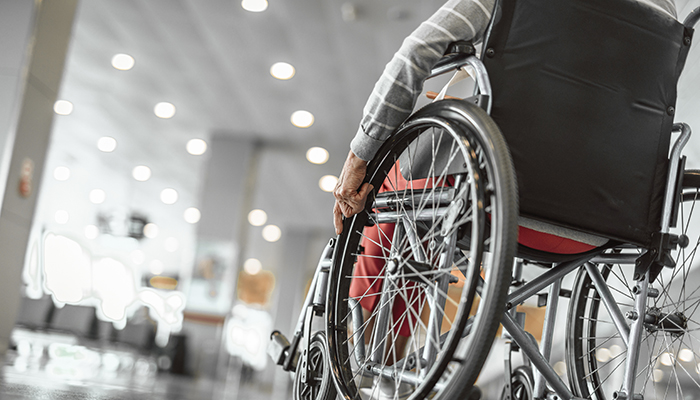
If you are concerned about your ability to safely manage all the tasks needed when your loved one is discharged from the hospital, speak up! On behalf of your relative, you have the right to appeal a discharge that seems too soon.
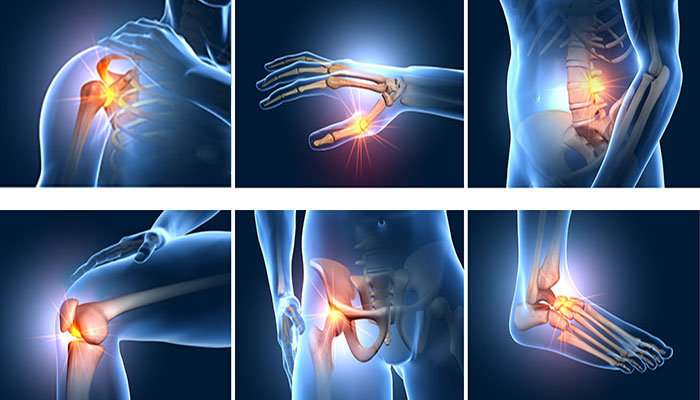
Joint pain, fatigue, depression, or persistent infections are just some of the possible symptoms of chronic inflammation. There is no specific blood test to zero in on the source of the problem. But the symptoms will point to the area(s) most likely affected and help the doctor investigate further.
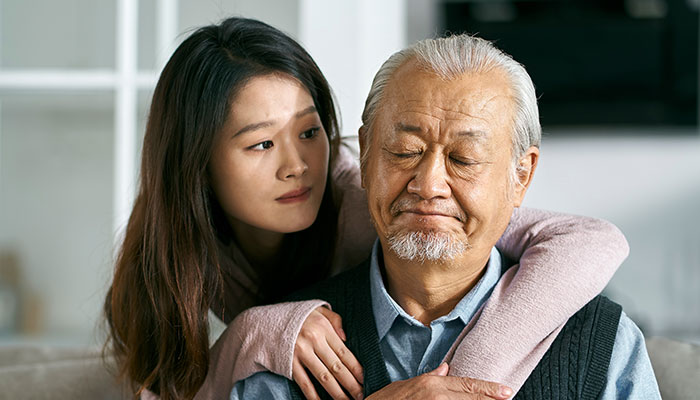
As the saying goes, “A grief shared is half a grief.” Learn to offer comfort to a loved one without jumping in too soon with reassurances or solutions. Such responses typically backfire. While comforting for the listener, they are more likely to close your relative down emotionally.

More and more Americans are turning to complementary and alternative healers such as herbalists, chiropractors, and acupuncturists. Learn the questions to ask as you search for a provider.

Many situations in eldercare require family decision making. This is easier said than done. Learn how to arrive at a mutually agreeable solution using insights from skilled negotiators.
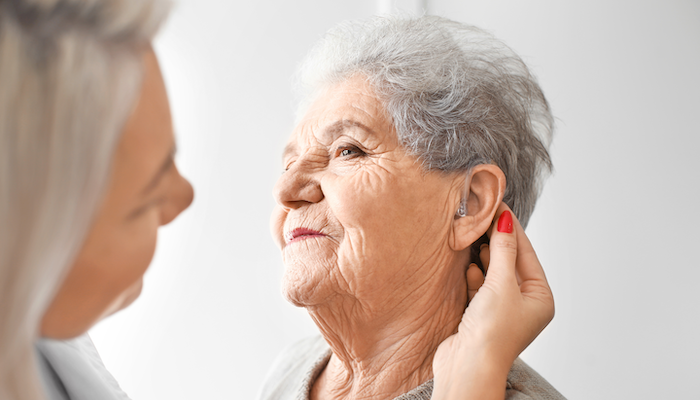
To honor Alzheimer’s & Brain Awareness Month, we’re looking at the link between dementia and hearing loss. The early signs of both can be quite similar, and, in fact, people with hearing loss are more likely to develop cognitive problems.

June is Elder Abuse Awareness Month. Financial abuse continues to be the most prevalent kind. Hackers, in particular, are getting very sophisticated. The latest scam is a multilayer effort to con people into transferring their savings into “protected accounts.” Warn the person you care for to be on the lookout for these fraudsters.

Patients in the hospital are rarely treated by their primary care physician. Instead, doctors who focus on the care of hospitalized patients have been found to be more effective and more available to answer questions during a hospital stay.
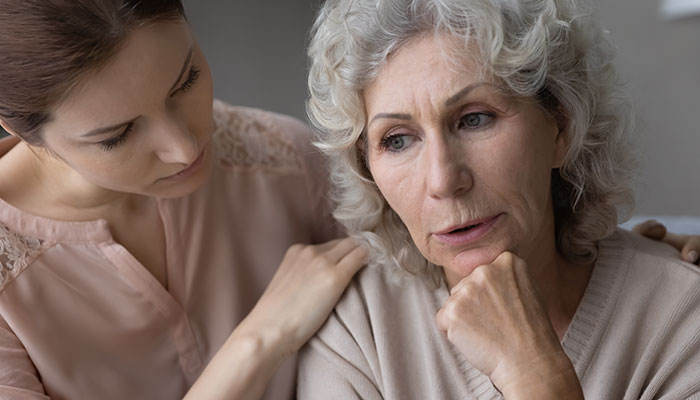
Sadness moves us. It nurtures compassion. It can help us feel connected with others. It can also prompt us to reevaluate our lives and make changes. Sadness is not the same as depression. It’s important to know the difference.

You might want to consider an urgent care center for non-life-threatening conditions. The wait is shorter and the stress is less than in the Emergency Room. On the other hand, the ER is more appropriate for serious conditions. How to know which to choose?

If the person you care for does not use a smartphone, with innovative new services, they can still enjoy the convenience of Lyft or Uber, no app—or hitchhiking!—required.

May is Action on Stroke Month. In that light, we look at “vascular dementia,” cognitive problems brought on suddenly by a stroke and/or gradually by “ministrokes” or “TIAs.”

Does your loved one deny there’s a problem? Resist the idea of a hearing aid? You are not alone! Learn ways to gently broach the subject.

Do you wish for the good old days when doctors made house calls? Many practitioners, including doctors, psychotherapists, physical therapists, occupational therapists, and speech pathologists, are now offering home visits (mobile outpatient services) that do not require your loved one be officially homebound.

People with conditions that limit movement, such as arthritis and Parkinson’s, often have difficulty dressing themselves. Dementia also makes dressing a challenge. Adaptive clothing enables your relative to do more for themselves, relieving you of a frustrating task and preserving their dignity and self-esteem.

When our immune system overreacts, it’s like a house on fire. This is more common as we age. Our immune system continues to tell our bodies we are being attacked, even when we aren’t, or aren’t any longer. Such “inflammaging”—the tendency in our later years to stay in an internally inflamed state—may be a common link between conditions such as cancer, diabetes, dementia, and heart disease.

While you may feel a move is urgent, the person you care for may not be ready. Don’t push! Instead, do some homework on your own so you are able to act quickly when they decide the time is right.

Between in-person and online support groups, there are many options to choose from. Make a list of your top priorities and then try out a few to see which one fits best.

If you have a disabled relative, perhaps a sibling, you may be asked to serve as the trustee for their “special needs trust.” While this is quite an honor, it’s an immense responsibility. Be sure you have the knowledge and support you will need.

March is National Kidney Month. Fully 15% of Americans have chronic kidney disease. Many are unaware of it. The condition lasts for decades, and symptoms do not appear until it is in the later stages, when irreversible damage has already been done. Should your loved one get checked?

If your loved one is having sleep problems, have them keep a sleep log for one or two weeks and then bring it to the doctor. Untreated sleep problems contribute to depression and memory loss.
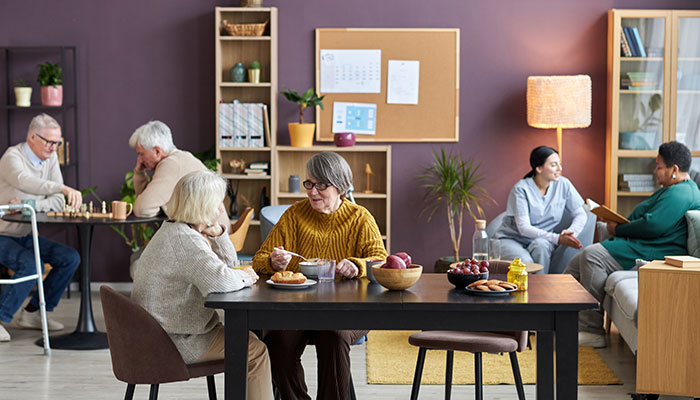
These facilities are best suited to older adults who are relatively healthy. They serve as a more affordable alternative to a nursing home for those who need help only with meals, housekeeping, bathing and dressing, and getting around.

Disgust is a natural response to something distasteful. But it can be distressing when it arises in the course of your caregiving duties. You may not be able to get rid of it completely, but there are things you can do to reduce the intensity.

If you’re worried about dementia, it may be that memory or thinking problems are being caused by conditions that can be treated and reversed. Remove the anxiety by getting a full medical evaluation.

If your older relatives did not learn Internet skills during their work lives, you may be getting calls to provide tech support. It can be frustrating, inconvenient, and perhaps not even the best for your relationship. There are alternatives.
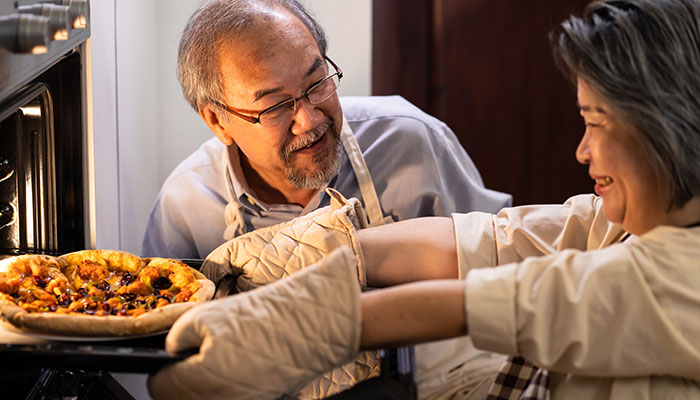
February 4–10 is National Burn Awareness Week, a good reminder to review precautions that can protect your loved one from harm.

If your partner has received a dementia diagnosis and is still working, consider these resources to help address the impact it will have on your family finances.

If you feel guilty and have regrets as a family caregiver, you are not alone. It could be because you are overstressed. Still, regret can be a useful signal that it’s time to do some thoughtful reflection and decide on future actions.
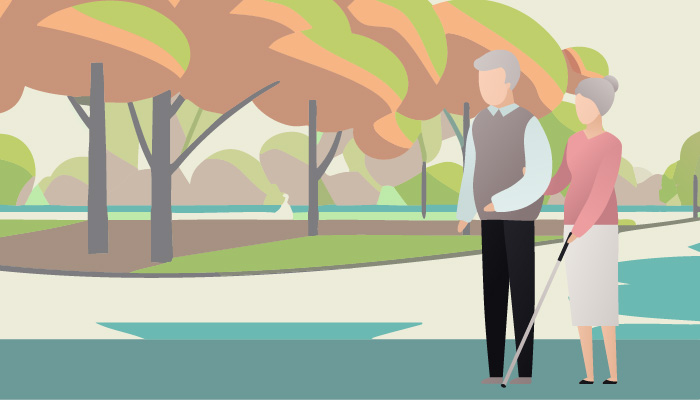
Learn tips to safely and effectively assist your visually impaired loved one, especially if they are in unfamiliar territory.
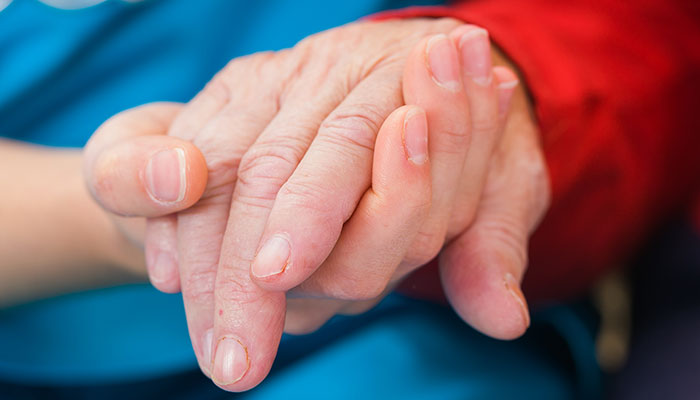
The skin is the body’s largest organ and its essential “armor.” To maintain good health, skin needs extra attention as we age. The skin has three layers. Working together, they act as the body’s shield by preventing bacteria and viruses from getting into the body and keeping body fluids from evaporating out; insulation by preserving…

Help the daily caregivers develop a fondness for your relative and view them as more than “the hip replacement in 210.” Showing a genuine interest in the life and daily experience of the aides will go a long way toward building a congenial sense of teamwork.

While many older adults do just fine with a regular consumer-grade tablet, others do better with a “senior tablet,” which has safety precautions and a simplified interface. Learn what to look for if you are considering one for your relative.

Providing comfort and calm is the watchword for the day of travel with a person who has dementia. Take advantage of the help that is available from airport personnel.

Failure to follow medical advice is one of the primary reasons older adults end up in the hospital. What can you do to help your loved one adhere to the doctor’s orders?

If your loved one has COPD, it’s important to understand which foods are most helpful and which should be limited. You might be surprised by the difference nutrition can make!
© 2002-2025, Choice Care Your Way. Site created by Elder Pages Online, LLC.